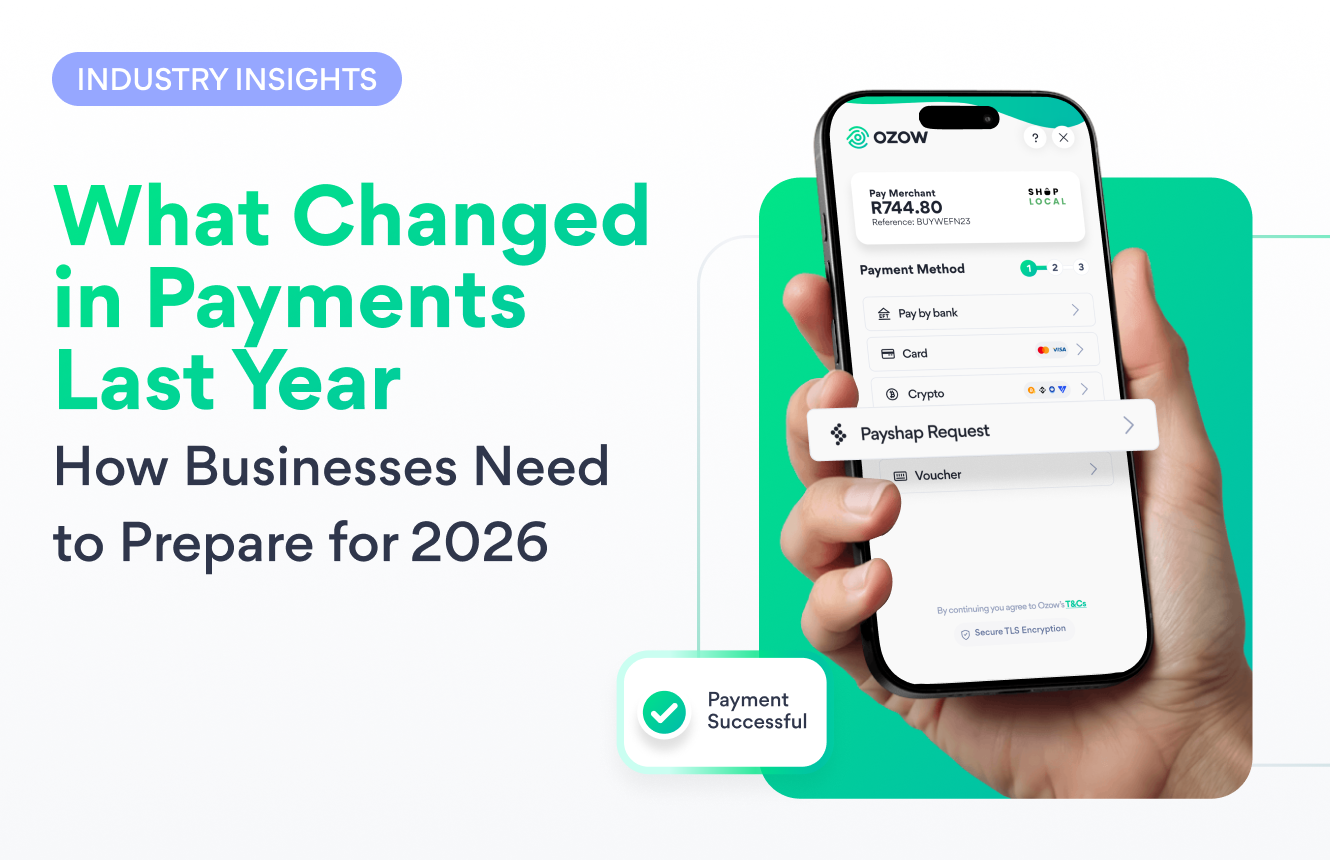
In a welcome development for the payments landscape, the South African Reserve Bank (SARB) and BankservAfrica has announced the next stage in South Africa’s Rapid Payments Programme (RPP), with four major banks launching PayShap on Monday, 13 March 2023.
Cash remains a major component of the South African economy – it accounts for nearly 40% of all transactions, more than any other payment method. This despite 80% of South Africans having a bank account.
This has serious consequences for the economy: According to the Payments Association of South Africa (PASA), cash related crimes totalled nearly R500 million in 2018 alone.
The South African Reserve Bank’s (SARB) Vision 2025 was created to address these challenges. Amongst its key goals are financial inclusion and cost effectiveness. RPP, and its customer-facing form, PayShap, are key to this strategy.
Fintechs and third party payment providers (TPPPs), have been essential stakeholders in the development of Vision 2025 as it seeks to expand financial inclusion for South Africa. The programme was developed with extensive collaboration from all parties in order to give it the best chance of success.
As Thomas Pays, Ozow Co-Founder and CEO puts it: “The Rapid Payments Programme is vital for bringing more South Africans into the digital economy. We’re excited to see it realise its potential after nine years of working closely with SARB and PASA to develop this important step in the country’s payments evolution.”
What is RPP and PayShap?
As we’ve established, RPP and PayShap are joint initiatives of SARB and BankservAfrica, with input from major banks and TPPPs.
South Africa’s version of RPP is not the first of its kind; similar efforts have been successful in countries including Brazil, the UK (home of one of the first RPPs), and India.
Gary Stone is Ozow’s Head of Regulatory and Banking, and was formerly the Head of Electronic Payments at BankservAfrica, where he was responsible for the management of core transactional services such as EFT, real time clearing (RTC), and transactional fraud mitigation services. He describes the environment in which RPP was conceived: “Various functional requirements were identified by the financial industry in South Africa as key requirements to modernising and opening up inclusion efforts in the economy. They are: Instant payments, request to pay, open APIs, and mobile and proxy payments.”

In the context of RPP, open banking is designed to facilitate payment between individuals and businesses. It does so through the BankservAfrica-endorsed API called PayShap. This solution is made available to banks, and through them to TPPPs and other suitable businesses.
Its operation is simple: Users create an identifier tied either to their bank, or a payment provider such as Ozow. Often, this is simply a cellphone number. This is used to access the secure API, which in turn facilitates payments – while maintaining the highest safety standards. The system is primarily designed for small-value transactions, with an initial single transaction limit of R3000.
The benefits of RPP and PayShap
Put simply, the intention of the stakeholders in RPP is for it to become cheaper than current instant payment methods. Essentially, it would make easy, fast digital payments not just available to a wide range of consumers, but preferable to cash payments.
This is particularly key for the informal economy, which in South Africa represents nearly a third of all economic activity. In these environments, cash remains the primary transactional medium. An effective alternative would therefore accelerate the move away from the cash economy.
Asked about the benefits of RPP and PayShap, Gary highlights two use cases: “One, it makes cheaper payments infrastructure and payments capabilities available to the underbanked. And two, it facilitates other use cases which aid in reducing the dependency on cash availability at a micro-level – for instance small cash transactions such a taxi fares, parking tickets, tips, ad hoc groceries, and more can be paid for using RPP.”
“It’s a system which is simple, low cost, real time, widely acceptable, irrevocable and an accepted medium of exchange.”
In other words it’s just like cash – but better.
Ozow, RPP and PayShap
The question must be asked: If 80% of South Africans already have bank accounts, why not simply offer the API solely to banks? Why include TPPPs at all?

“Banks alone can't extend the reach to and for such functionality,” explains Gary. “TPPPs, as innovative and growing fintechs, which currently process significant transactional volume, and which have the capability to develop expanding frontend functionality, can contribute to this goal of inclusion. Additionally, they can do so with the required levels of security and certainty necessary to continue to protect the National Payments System (NPS).”
Ultimately, this is what has driven fintech’s support of RPP over the course of its development. Our goal is to expand financial inclusion, yes, but never at the expense of the safety and security of those who use our services.
It’s this sentiment which has driven the desire from regulators to transition South Africa away from cash. It’s this sentiment which has caused us to embrace the most stringent security protocols that the industry can offer. It’s this sentiment which holds the promise of more equitable financial access for every South African.
As Thomas puts it: “Financial inclusion is the heart of Ozow. The release of RPP and PayShap brings us one step closer to making that a reality, and making a real difference in the lives of ordinary South Africans.”
Citations
-
Staff Writer








